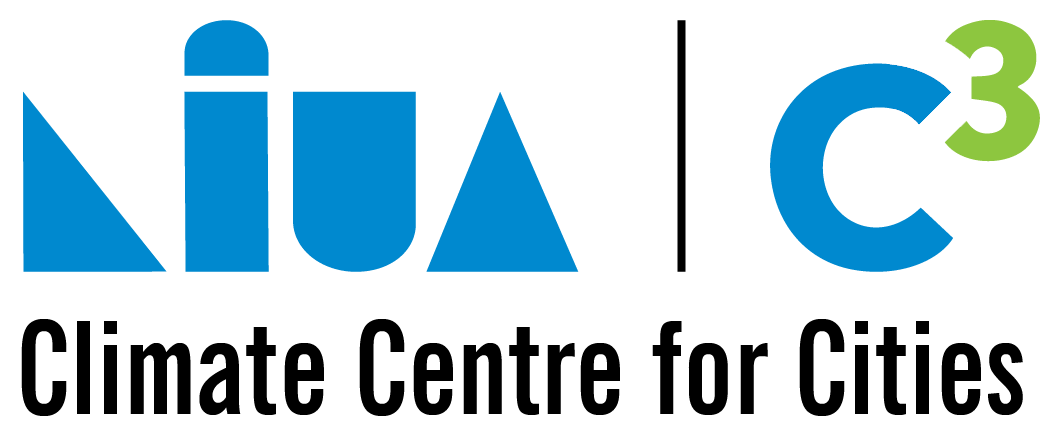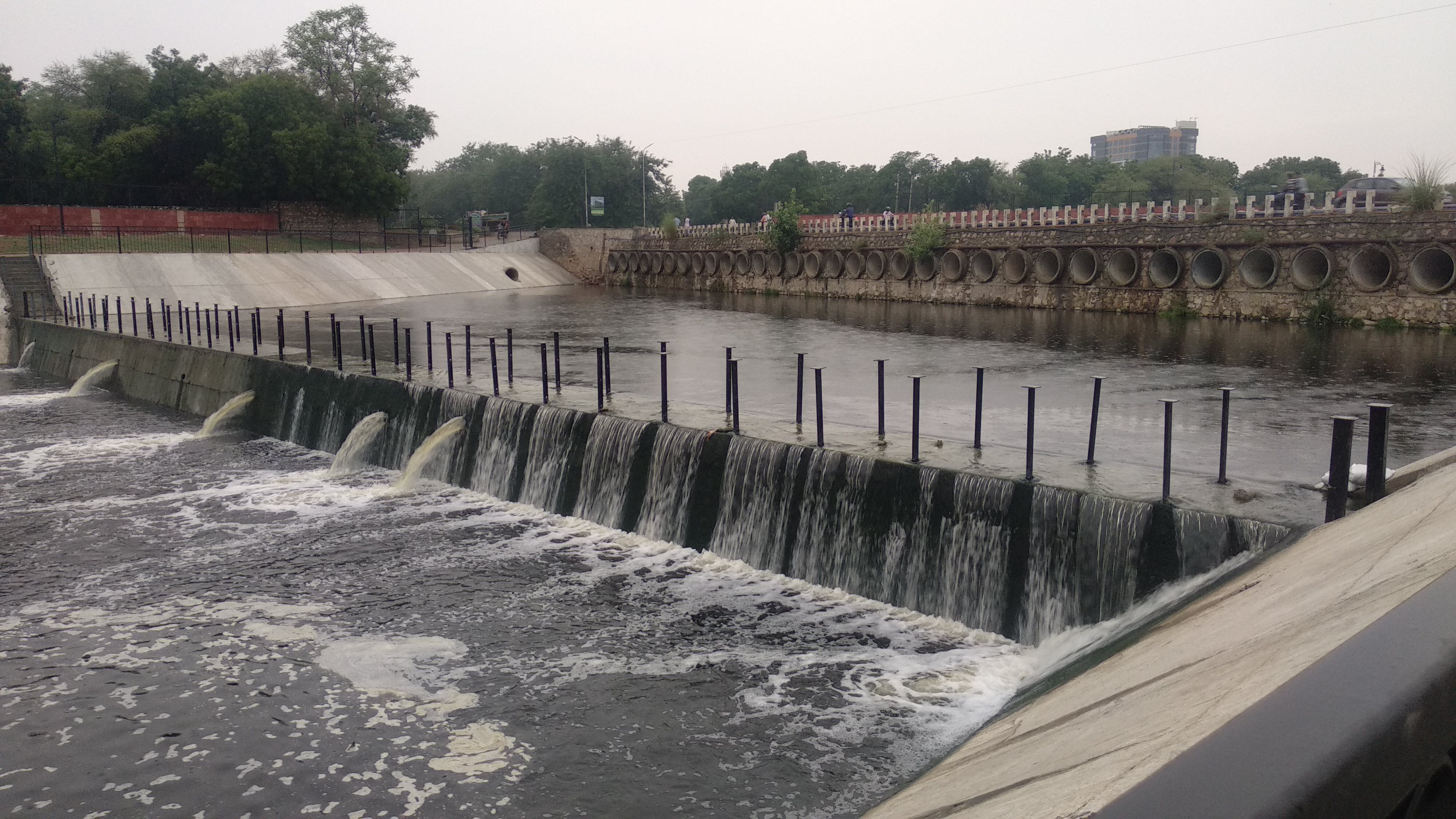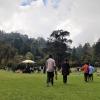Three contemporary approaches for urban water management to create climate resilient cities
Published On:
Wednesday, October 14, 2020
The relationship between water and climate change cannot be overemphasized. It is the primary medium through which the impacts of climate change are manifested. These impacts result in either too much water in the form of floods or too little water corresponding to water shortages. India has seen a flurry of both such events in the recent past. Invariably, the hotbed for such events are cities. A recent report by the Ministry of Housing and Urban Affairs suggests that more than 750 Urban Local Bodies (ULBs) are already water stressed. Likewise, a report by the Centre for Research on the Epidemiology of Disasters warns that 124 AMRUT cities and 18 Smart Cities are at high risk from flooding.
The knowledge on managing the urban water sector has changed by leaps and bounds in the last few years. What was once perceived as an infinite renewable resource is now being understood as something that cannot be taken for granted. Technology has further helped enhance this knowledge. Water leaders such as Melbourne, Singapore, Amsterdam, and Los Angeles have gone one step further and translated this knowledge into practice. Through this blog, we’d like to highlight three contemporary approaches for water management followed by such progressive cities.
The first is the widely propagated philosophy of Integrated Urban Water Management (IUWM). The central principle of this approach is to manage freshwater, wastewater and stormwater through a systems thinking. This is important because these three elements are interconnected, and have a role to play in augmenting the water security of a city. Already treated wastewater is increasingly being used to meet the non-potable demand in many cities. Similarly, stormwater capture projects help supplement the groundwater reserves, which ultimately will serve as a source of supply. As the names suggests, the “integrated” aspect of this approach is crucial. The notion of “integrated management” sometimes tends to make government agencies uncomfortable because they misconstrue this for integrated governance. However, integrated management does not necessarily mean integrated governance. It could be as simple as facilitating the channels for inter-agency communication. IUWM works differently for different cities. There is no one-size-fits-all model. It is a general philosophy to help cities discover their own models of managing the urban water sector.
The second approach is demand management. Adopting this approach essentially means making a conscious acknowledgement that water resources are limited, and tapping into new resources is just not feasible nor productive. The focus, instead, is on reducing the demand for freshwater through a two-pronged strategy of conservation and recycling. This concept is not new and many Indian cities are already practicing this through interventions such as rainwater harvesting, reuse of treated wastewater, adoption of water efficient fixtures, and others. While the intent is very much there, the ambition needs to be scaled up. For example, Delhi currently reuses only 8% of its treated wastewater. As the impacts of climate change intensify, the reliability of traditional sources of water may come under the scanner. Under such circumstances, the need for demand management becomes even more pronounced. Demand management becomes far easier to adopt when there is a crisis. For example, Melbourne was able to reduce its water demand by almost half after the Millennium Drought. Similarly, Singapore was able to set up the ambitious NEWater programme after it realized the need to reduce the reliance on Malaysia for freshwater supply. The message is quite evident—the time has come to convert crises into opportunities.
The third approach is Water Sensitive Urban Design (WSUD). This approach acknowledges and integrates the role of city planning in managing the water resources of the city. It is a holistic approach to plan, design and integrate water cycle management within the built environment through urban design. In its simplest form, WSUD helps address two critical aspects of water management—flood control, and groundwater recharge. Both these aspects are especially significant from a climate change point of view. WSUD has implications at multiple scales in a city. For example, city planners consider the natural drainage patterns and ground contours to earmark areas for parks and gardens, which can serve as flood detention sinks whenever needed. Likewise, at a neighborhood scale, WSUD elements such as raingardens, bioswales, porous pavements, constructed wetlands have demonstrated their usefulness for both flood control and groundwater augmentation. More advanced models of WSUD aspire to manage and link the blue and green assets of cities for enhancing and optimizing its benefits. This interconnected network of natural and semi natural elements allows for natural flow of water and controlled interaction of biodiversity with human activities, which adds value to the overall ecosystem of resources.
Each of the three aforementioned approaches require a holistic understanding of the intricacies associated with the water sector in the city to help roll out the various interventions. Furthermore, this needs to be complemented by a robust monitoring and evaluation framework to help imbibe a culture of ‘reflecting and learning’. This becomes all the more important in light of climate change, where the learning will essentially inform adaptation options. The Climate Smart Cities Assessment Framework can serve as useful decision support system for cities to help develop robust strategies for climate-resilient water management.
Climate change is undoubtedly a global challenge, but it is a challenge that has a solution. To paraphrase Greta Thunberg “The climate crisis has already been solved. We already have the facts and solutions. All we have to do it wake up and change”.
Disclaimer: Views expressed are personal
Contact Us
1st and 2nd Floor, National Institute of Urban Affairs
India Habitat Centre Lodhi Road New Delhi-110003
Please Call Help Desk at 011-411-86699
Monday - Friday, 9:00 AM - 5:00 PM
Please write to us at c-cube@niua.org








Post a Comment